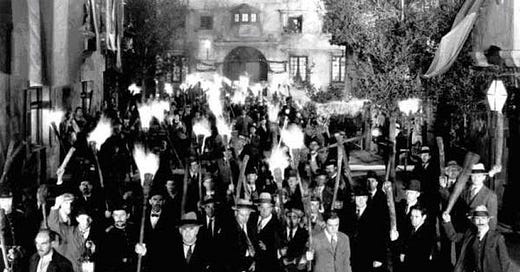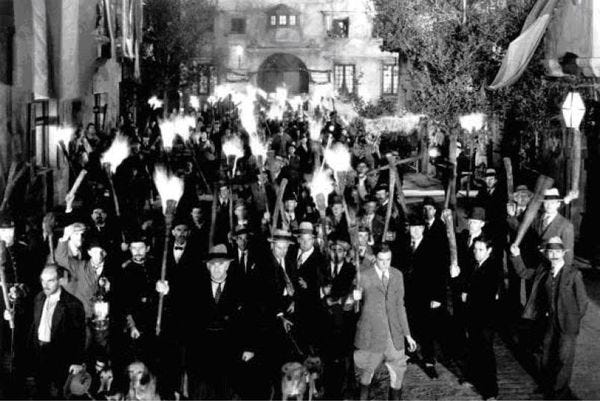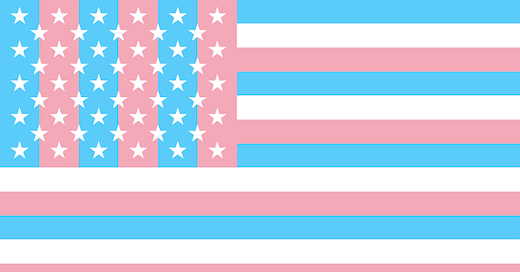
Won't Someone Think Of Our Billionaires Who Pay No Taxes?
ProPublica gonna make you mad. Mean mad.
F. Scott Fitzgerald definitely wrote , "Let me tell you about the very rich. They are different from you and me." Ernest Hemingway never actually replied "Yes, they have more money" to Fitzgerald's face, but it's a good story anyway. But there's another huge difference between the very rich and the rest of us: They not only have far more money, they alsodon't pay much tax on their riches, either. Frequently, they don't pay any income tax at all. That's one of those things I think we're all sort of vaguely aware of — especially in the Age of Trump — but ProPublica has set out to explain exactly how bad it is.
After the nonprofit investigative journalism outfit ran a series of articles on the IRS and how the agency has been gutted by budget cuts, a great big trove of raw tax data, covering 15 years of tax records for the very richest Americans, "was provided" to ProPublica, not that it's saying where the info came from. And after reporters "spent months processing and analyzing the material" to build a usable database, ProPublica says its deep dive into the tax records of the very top slice of the One Percent
demolishes the cornerstone myth of the American tax system: that everyone pays their fair share and the richest Americans pay the most. The IRS records show that the wealthiest can — perfectly legally — pay income taxes that are only a tiny fraction of the hundreds of millions, if not billions, their fortunes grow each year.
And that's putting it mildly. The story made Yr Editrix so mad she was just plain unable to finish reading it. I was able to finish because I had to, but there was a lot of shouting, and I think I may have scared the cat.
The reason for the outrageous disparities between how average Americans pay taxes — and how the rich avoid doing so — comes down to a simple question of definitions: What is "income," anyway? For most of us, it's the money we get in the form of a paycheck, plus possibly some interest income and maybe even some stock dividends for the fancier sort of people. But the very wealthy don't have much "income," at least by the normal — and IRS — definition of the term. Their wealth comes from the increase in value of their assets, mostly stock and property, and those gains "are not defined by U.S. laws as taxable income unless and until the billionaires sell." (When they do sell assets, they have to pay capital gains tax on the increase in value, but hooray for the rich, those gains are taxed at a far lower rate than "income." Joe Biden wants to close that difference in taxation. )
To illustrate the difference between how you and I pay taxes and how the very rich mostly don't, ProPublica did some math, but don't worry, it's not scary math, except for what it says about wealth inequality:
To capture the financial reality of the richest Americans, ProPublica undertook an analysis that has never been done before. We compared how much in taxes the 25 richest Americans paid each year to how much Forbes estimated their wealth grew in that same time period.
We're going to call this their true tax rate.
Now, admittedly, this is a construct, but it seems a useful ratio, given that Americans making the median income of $70,000 a year pay 14 percent in income tax. The highest current tax rate is 37 percent, for couples making more than $628,300. So how about the 25 richest Americans? They
saw their worth rise a collective $401 billion from 2014 to 2018. They paid a total of $13.6 billion in federal income taxes in those five years, the IRS data shows. That's a staggering sum, but it amounts to a true tax rate of only 3.4%.
It's a completely different picture for middle-class Americans, for example, wage earners in their early 40s who have amassed a typical amount of wealth for people their age. From 2014 to 2018, such households saw their net worth expand by about $65,000 after taxes on average, mostly due to the rise in value of their homes. But because the vast bulk of their earnings were salaries, their tax bills were almost as much, nearly $62,000, over that five-year period
And yes, even if we raised the very top individual income tax rate to 39 percent like Biden has called for, the very wealthy would mostly be able to sidestep it, because they don't get much in the form of a salary. Jeff Bezos, the richest guy on the planet, only gets a salary of $80,000 annually, for instance. Other rich people take only a symbolic "salary" of a dollar a year. Strangely, they do not have to scrimp on groceries.
If you look at his wealth growth from 2014 to 2018, Bezos got $99 billion richer. He reported income for that period of $4.22 billion from all sources (really, just 4.26 percent of his wealth), and paid $973 million in taxes, which seems like a lot of money if you're deciding whether to pay rent or buy food, but works out to less than one percent of his wealth. Bezos paid no income tax at all in 2007 and 2011.
Now, here's the bit that drove Rebecca to stop reading, and we can't blame her at all:
Our analysis of tax data for the 25 richest Americans quantifies just how unfair the system has become.
By the end of 2018, the 25 were worth $1.1 trillion.
For comparison, it would take 14.3 million ordinary American wage earners put together to equal that same amount of wealth.
The personal federal tax bill for the top 25 in 2018: $1.9 billion.
The bill for the wage earners: $143 billion.
The article presents a brief history of taxation in the USA, and notes that the distinction between taxable income and asset-based wealth only arose following a Supreme Court decision, Eisner v. Macomber, in 1920. For the first few years of the federal income tax, in fact, the tax burden fell almost entirely on the very wealthy, because there was no distinction between income and asset wealth. But since then, the increase in value of assets has only been taxable once the assets are sold. And ever since, there have been two tax systems: those for people earning wages pay far more, and those whose wealth comes from assets pay far less.
In fact, the super rich don't even have to sell stock or property for walking-around money or to make new investments. That would mean paying some taxes, so it makes far more sense to borrow against their vast wealth — and then to use their interest payments to offset whatever income they might be taxed on. Isn't that a neat trick?
The tax math provides a clear incentive for this. If you own a company and take a huge salary, you'll pay 37% in income tax on the bulk of it. Sell stock and you'll pay 20% in capital gains tax — and lose some control over your company. But take out a loan, and these days you'll pay a single-digit interest rate and no tax; since loans must be paid back, the IRS doesn't consider them income. Banks typically require collateral, but the wealthy have plenty of that.
And while the tax records generally don't reflect such loans, they're sometimes disclosed in securities filings. Lookit the Elon Musk!
Last year Tesla reported that Musk had pledged some 92 million shares, which were worth about $57.7 billion as of May 29, 2021, as collateral for personal loans.
With the exception of one year when he exercised more than a billion dollars in stock options, Musk's tax bills in no way reflect the fortune he has at his disposal. In 2015, he paid $68,000 in federal income tax. In 2017, it was $65,000, and in 2018 he paid no federal income tax. Between 2014 and 2018, he had a true tax rate of 3.27%.
ProPublica did try to contact the rich folks it discussed in the piece. Some didn't respond, others pointed out that they paid all the tax they're legally required to ( yes, that's the problem! ), and others got weird. Musk replied to an initial request if he'd comment with just a question mark, then ignored a detailed list of questions. A spox for Michael Bloomberg pointed out he's called for higher taxes on the rich, but also huffed a lot about how terrible it was that ProPublica somehow had his tax information at all, adding, "We intend to use all legal means at our disposal to determine which individual or government entity leaked these and ensure that they are held responsible."
And super-investor Carl Icahn seemed completely puzzled that anyone would care whether the super-rich pay no taxes at all some years:
"There's a reason it's called income tax," he said. "The reason is if, if you're a poor person, a rich person, if you are Apple — if you have no income, you don't pay taxes." He added: "Do you think a rich person should pay taxes no matter what? I don't think it's germane. How can you ask me that question?"
See? They really are different from you and me.
Also, we should add that the IRS is looking into how the tax data may have leaked, but ProPublica President Richard Tofel said in a statement, "we do not know the identity of our source."
[ ProPublica / MarketWatch ]
Yr Wonkette is funded entirely by reader donations. If you can, please give $5 or $10 a month so we can keep doing class war.
Do your Amazon shopping through this link, because reasons .
Moderator's reminder: Yes, eating the rich is fine. But otherwise, the Comments Policy remains in effect today.












TFG played them too.
I am not at all sure they do pay all the tax they are legally required to, as minuscule as that percentage comparatively is. I believe they are so flaming greedy most of them resort to illegal tricks and sleights to avoid paying even that - one of the reasons they maintain entire staffs of accountants and lawyers. In fact I think it was right here on Wonkette that I read they do not get caught by the IRS - because of those same ingenious accountants and tax lawyers - while a waitress who reports her tips incorrectly is gone like a salmon in a basket trap. The IRS could catch them, if it was funded for enough clever lawyers and bookkeepers and computer nerds of its own, but apparently it isn't.The result would be enough extra government income to cover the IRS expenses and a lot of infrastructure too.Just listen to the super rich squeal like thoats on the dead sea bottoms of Barsoom the day that happens. "Socialism! Tyranny! I've only got 200 billion extra dollars this year! The government stole the rest!"